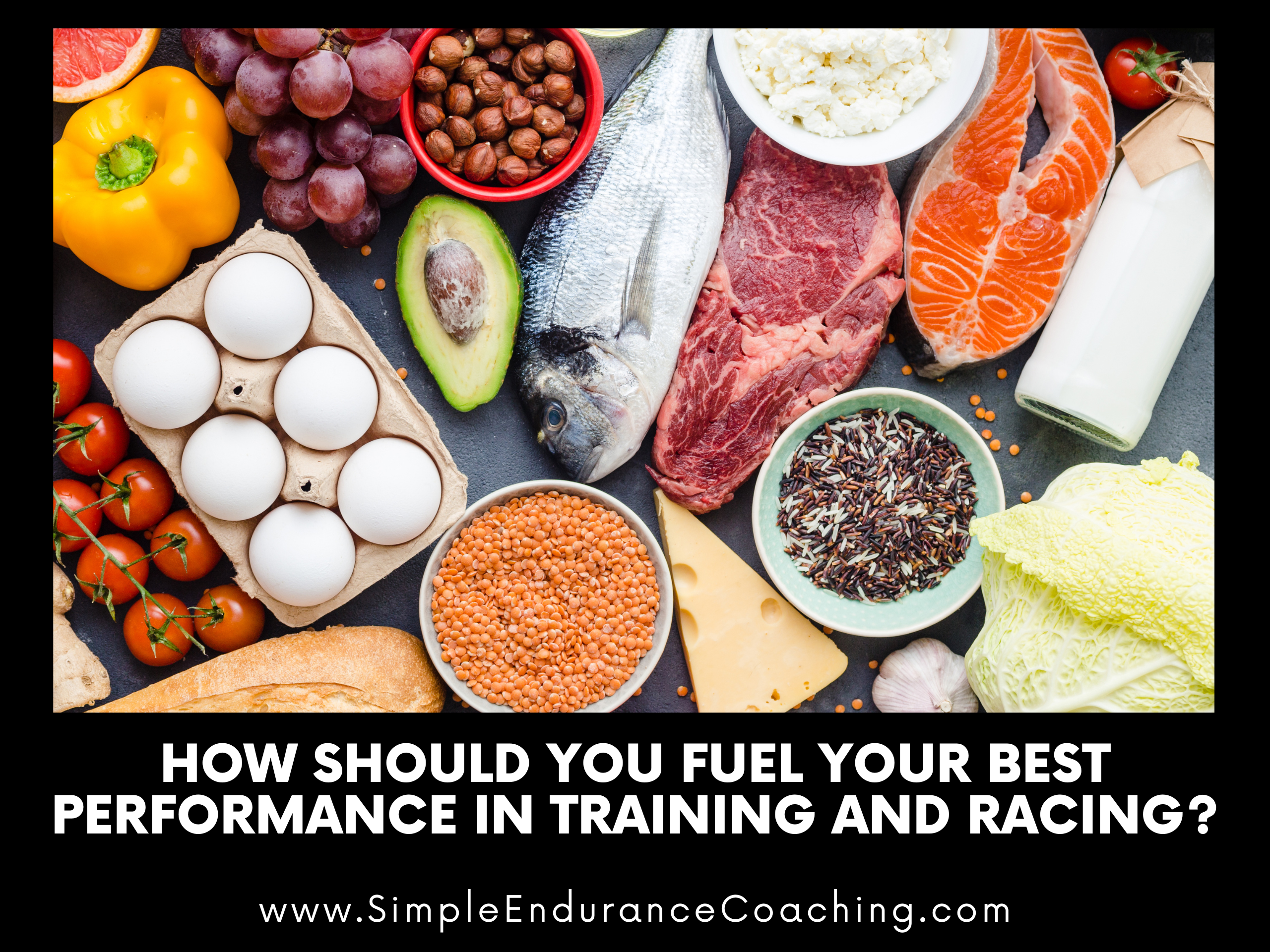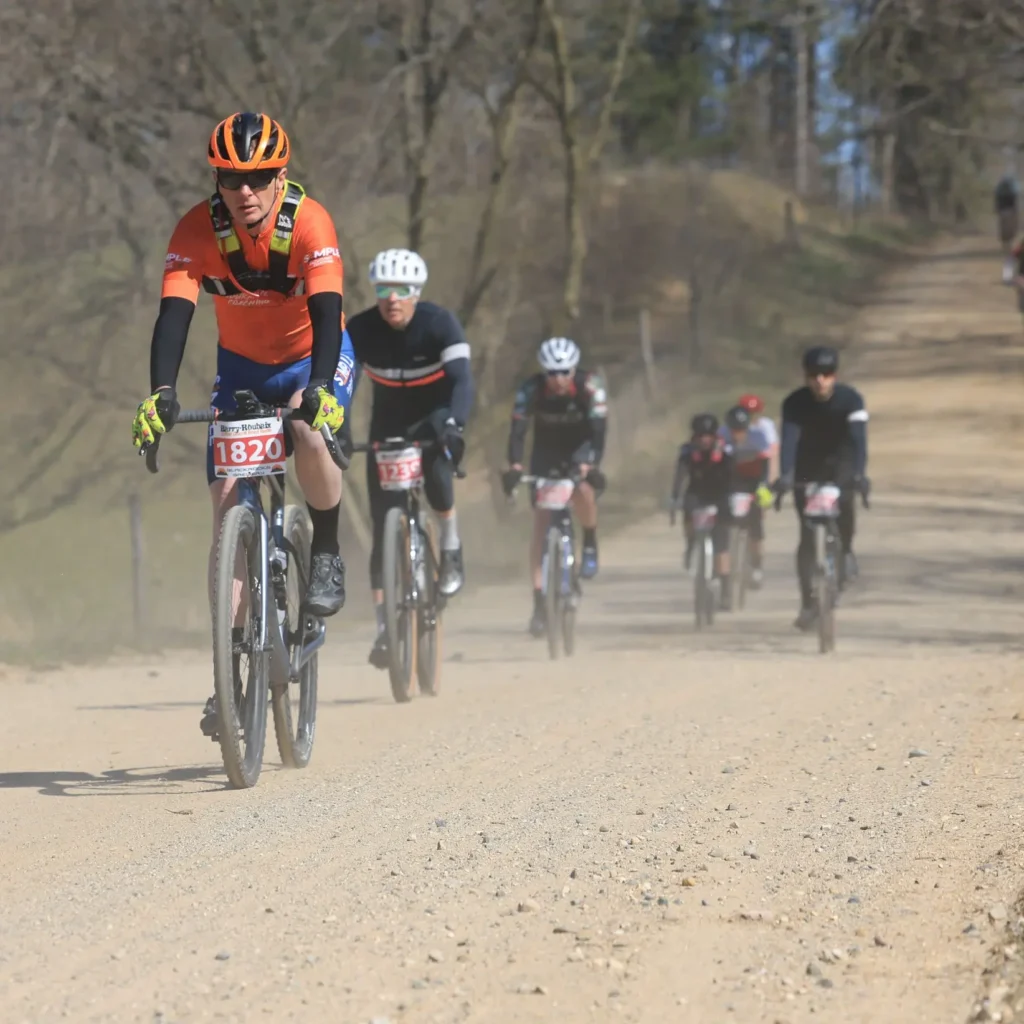Nutrition for Endurance Athletes: Fueling Your Best Performance
Fueling your body for optimal performance in training and racing is a crucial aspect of any endurance athlete’s journey.
Whether you’re a cyclist or runner, understanding how to fuel yourself effectively can make all the difference in reaching your goals.
In this blog post, I will explore the importance of low-glycemic carbohydrates, the role of protein in recovery fuel, and provide valuable insights into organizing your eating patterns throughout the day.

Importance of low-glycemic carbohydrates
When it comes to fueling your body for training and racing, the quality of carbohydrates you choose plays a crucial role.
Low-glycemic carbohydrates are an essential component of a well-balanced diet for endurance athletes.
Unlike high-glycemic carbs that cause rapid spikes in blood sugar levels, low-glycemic carbs provide a slow and steady release of energy.
These complex carbohydrates, found in foods like whole grains, fruits, vegetables, and legumes, are digested more slowly by the body.
This means they provide a sustained source of fuel during long training sessions or races without causing drastic fluctuations in blood glucose levels.
Including low-glycemic carbs in your pre-workout meals can ensure that you have enough stored glycogen to power through intense exercise while avoiding sudden crashes or feelings of fatigue.
Additionally, incorporating these types of carbs into post-workout meals aids in replenishing depleted glycogen stores efficiently.
Importance of carbohydrates as nutrition for endurance athletes
Carbohydrates play a crucial role in fueling the performance of both cyclists and runners.
They are the primary source of energy for our muscles during exercise, providing quick and readily available fuel.
When we consume carbohydrates, they are broken down into glucose, which is then used by our muscles to generate ATP (adenosine triphosphate), the molecule responsible for supplying energy.
For endurance athletes like cyclists and runners, who engage in prolonged periods of physical activity, having an adequate supply of carbohydrates is essential.
Carbohydrates help delay fatigue by replenishing glycogen stores in the muscles and liver.
This allows athletes to maintain their intensity and perform at their best for longer durations.
Include carbohydrates pre, during, and post-workout
Including carbohydrates as part of your pre-workout or pre-race meal can help top up your glycogen stores before you hit the road or trail.
During extended training sessions or races lasting more than an hour, consuming easily digestible carbohydrate-rich snacks or sports drinks can help maintain blood sugar levels and delay fatigue.
Remember that each person has unique nutritional needs based on factors such as body composition, training volume/intensity, goals, genetics, etc., so it’s always a good idea to work out a plan during training, not racing.
Fueling your performance with appropriate amounts of carbohydrates will ensure optimal energy levels throughout your training sessions or races!
Importance of protein as recovery fuel
Protein is often associated with building and repairing muscles, but its importance as a recovery fuel goes beyond that.
When we engage in intense training or racing, our muscles experience micro-tears and inflammation.
Protein plays a crucial role in the healing process by providing the necessary amino acids to rebuild damaged tissues.
In addition to muscle repair, protein also helps regulate hormone production and supports immune function.
This is especially important for endurance athletes who put their bodies through rigorous training sessions, like strength training and intervals on a regular basis.
Consume protein after exercise
To maximize the benefits of protein as a recovery fuel, it’s essential to consume it within the optimal time frame after exercise.
Research suggests that consuming protein within 30 minutes to an hour post-workout can enhance muscle synthesis and aid in recovery.
While there are various sources of protein available such as animal products (meat, eggs) and plant-based options (legumes, tofu), it’s important to choose high-quality sources that provide all essential amino acids.
Additionally, combining protein with carbohydrates can further optimize recovery by replenishing glycogen stores.
Incorporating adequate amounts of protein into your post-exercise nutrition plan can help support muscle repair, enhance recovery, and improve overall performance as an endurance athlete.
Best ways to fuel on the bike/run
When it comes to fueling on the bike/run, timing is key.
You want to make sure you’re consuming enough carbohydrates and fluids to keep your energy levels up and avoid dehydration.
One popular strategy is to consume small amounts of carbohydrates every 15-20 minutes during your workout.
There are a variety of options for fueling on the bike/run, including gels, bars, sports drinks, and even real food like bananas or sandwiches.
It’s important to experiment with different options during training rides/runs so you can find what works best for you.
Don’t wait until the race to try things out!
Intensity and duration matter
It’s also important to consider the duration and intensity of your ride when planning your fueling strategy.
For longer rides or high-intensity efforts, you will need more carbohydrates than during shorter, less intense rides.
With longer rides, plan on 60 to 90g of carbohydrate per hour.
With more intense, shorter rides, consider fueling prior to the work.
In addition to carbohydrates, don’t forget about protein!
Including some protein in your post-ride snack or meal can aid in muscle recovery and repair after those tough workouts.
Fueling properly on the bike can make a significant difference in both training and racing performance.
Experiment with different strategies during training rides so that come race day, you have a solid plan in place!
What is the research on the nutrition needs of endurance athletes?
One study, titled “Nutrition and Supplement Update for the Endurance Athlete,” provides a comprehensive review of the key recommendations for macronutrients, hydration, and supplements for endurance athletes.
It highlights the importance of carbohydrate-rich diets for optimal performance during competitions and intense training.
The study emphasizes that endurance athletes should consume 8 to 10 grams of carbohydrate per kilogram of body weight per day to support the high glucose demands of their physical activity (Articles – Journal of the International Society of Sports Nutrition).
A second study titled “Nutrient Adequacy in Endurance Athletes” evaluated the dietary intake of 95 endurance athletes.
The researchers used a 24-hour dietary recall method to assess their nutrient intake.
The study found that carbohydrate intake was crucial for meeting the energy demands of endurance exercise.
It recommended increasing carbohydrate intake to around 70% of total daily calories to support the high volume of glucose needed for endurance activities (Nutrient Adequacy in Endurance Athletes).
This much carbohydrate seems really high, though.
Most research puts carb consumption about 45 to 55 percent of daily calories.
Research suggests carb diets better than others for endurance athletes
While there is ongoing debate regarding the optimal diet for endurance athletes, one study that provides insights into the comparison between a carbohydrate-based diet and a paleo or keto-based diet compared the effects of a high-fat, low-carbohydrate (keto) diet with a high-carbohydrate, low-fat (carbohydrate-based) diet on cycling performance.
The results of the study indicated that the carbohydrate-based diet led to better endurance performance compared to the keto-based diet.
The participants on the carbohydrate-based diet reported greater power output and cycling performance during prolonged exercise sessions.
This suggests that a higher carbohydrate intake may optimize endurance performance in athletes (A Comparison of High-Fat, Low-Carbohydrate and High-Carbohydrate, Low-Fat Diets on Endurance Performance: A Randomized Crossover Trial).
The criticism of this study is that it didn’t last as long as keto-advocates say is necessary to adaptations.
Are Paleo or Keto diets good as nutrition for endurance athletes?
Speaking of which, many athletes have turned to the Paleo or Keto diets in recent years, believing that these low-carb, high-fat approaches could enhance their endurance performance and general health.
Advocates say that keto/paleo diets build better long-term health.
However, when it comes to fueling for endurance activities like cycling and running, these trendy diets may not be the best choice.
While both Paleo and Keto emphasize cutting out processed foods and focusing on whole, natural ingredients, they significantly limit carbohydrate intake.
Carbohydrates are the body’s primary source of energy during exercise, especially at higher intensities.
By restricting carbohydrates on these diets, you may find yourself lacking in energy and unable to perform optimally.
Carbohydrates can improve performance
Additionally, research has shown that a diet higher in carbohydrates can improve endurance performance by replenishing glycogen stores more efficiently.
This is crucial for sustaining long-duration efforts without hitting a wall.
Instead of adopting strict Paleo or Keto guidelines as an endurance athlete, it’s important to strike a balance between macronutrients.
Including sufficient amounts of complex carbohydrates along with lean proteins and healthy fats will provide your body with the fuel it needs for optimal training and racing.
Some keto/paleo users suggest that since you need carbs on race day, limit your carbs until two days before the big event.
I’ve been trying this and will report out some findings soon!
What’s the best way to organize my eating during the day?
When it comes to organizing your eating during the day, there are a few key factors to consider.
First and foremost, it’s important to listen to your body and give it the fuel it needs when it needs it.
This means tuning in to hunger cues and eating regular meals and snacks throughout the day.
One strategy that many athletes find helpful is meal prepping.
Taking some time at the beginning of the week to plan and prepare meals can save you time and stress later on.
Consider batch cooking grains, proteins, and vegetables that you can mix-and-match for balanced meals throughout the week.
Consider timing your fueling types
Another important aspect of organizing your eating is considering nutrient timing.
Aim to consume a balance of carbohydrates, protein, and healthy fats before, during, and after workouts or races.
Before exercise, opt for easily digestible foods that provide sustained energy such as bananas or oatmeal.
Additionally, be sure to stay hydrated throughout the day by drinking water regularly. Dehydration can negatively impact performance so make an effort to drink fluids consistently.
Don’t forget about recovery nutrition! After training or racing, prioritize consuming a combination of carbohydrates and protein within 30-60 minutes post-exercise in order to replenish glycogen stores and promote muscle repair.
Finding a routine that works best for you may take some trial-and-error but being mindful of your body’s needs will help optimize your performance both on training days and race days!
How should I periodize my eating?
We’ve discussed the importance of low-glycemic carbohydrates as a source of sustained energy, the role of carbohydrates in fueling both cyclists and runners, and the significance of protein for recovery.
How can you periodize your eating to optimize training?
We periodize our training, we can do the same for our eating.
To help maximize training adaptations and support recovery from intense workouts or races, many athletes opt for an approach called “periodized eating.”
This involves manipulating macronutrient ratios (carbohydrates, proteins, fats) based on training requirements.
During periods of high-intensity training or race preparation phases known as “build” phases, increasing carbohydrate intake can be beneficial.
Carbohydrates are the primary fuel source during intense exercise and replenishing glycogen stores becomes vital.
Emphasizing whole grains like quinoa or brown rice along with starchy vegetables like sweet potatoes can provide a steady release of energy.
On lighter training days, yoga, or rest days during “base” phases where mileage is lower but the focus still remains on aerobic development; reducing overall caloric intake may benefit weight management efforts while ensuring adequate nutrition.
Furthermore, it’s important not to overlook the power protein plays in supporting muscle recovery after strenuous exercise sessions.
To enhance muscle repair, the optimal dose would range between 20-30 grams post-workout spread throughout every three hours.
Use protein sources such as chicken, fish, eggs, tofu, lentils, etc., and protein powder is a good supplement to have on hand.
Four things to consider about fueling your best performances
- Carbohydrates are still the primary fuel source for endurance athletes.
- Eat healthy foods, like low-glycemic carbohydrates, good fats, and good sources of protein.
- Time your fueling sources and macros to optimize your training and racing.
- Remember that food is delicious, and we need to focus on eating well, not obsessing over calorie counts or worrying about having flan or ice cream for dessert sometimes!
Need more?
Get a free Core Strength and Stability training video when you opt-in to receive my weekly blog posts about what works in endurance sports.
Sign up for Virtual Coffee so we can discuss your goals, ask questions, and talk about making your endurance training more effective, fun, and Simple.
Paul Warloski is a:
- USA Cycling Level 3 Coach
- RRCA Running Coach
- Training Peaks Level 2 Coach
- RYT-200 Yoga Instructor
- Certified Personal Trainer





